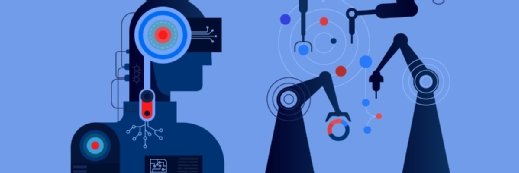
Getty Images
MA Collab Funds AI-Based In-Home Care, Aging Pilot Projects
The Massachusetts AI and Technology Center for Connected Care in Aging and Alzheimer’s Disease announced $1.7 million for seven pilot projects.
The Massachusetts AI and Technology Center for Connected Care in Aging and Alzheimer’s Disease (MassAITC) at the University of Massachusetts (UMass) Amherst announced $1.7 million in funding for seven projects to pioneer approaches for in-home care using artificial intelligence (AI) and other advanced technologies.
MassAITC is a collaboration between UMass Amherst, Brigham and Women’s Hospital, Massachusetts General Hospital, Brandeis University, and Northeastern University to support healthy aging at home for older adults and those with Alzheimer's disease.
According to the news release, over 90 percent of older adults in the US would prefer to stay in their homes as they age. Still, the burden of chronic diseases, such as Alzheimer's, can make aging at home nearly impossible without significant outside support, such as virtual care technology.
The MassAITC pilot projects aim to support the goal of aging at home through an interdisciplinary research approach that leverages the perspectives of patients, caregivers, clinicians, behavioral scientists, and others to enhance efforts in wearable and contactless sensing, AI, and machine learning (ML), the news release states.
The awards competition for the pilot projects was guided by a broad mandate to use advanced technologies, like AI and ML, to address challenges related to aging and managing Alzheimer's disease and related dementias (AD/ADRD).
“The pilots bring together an exceptional group of interdisciplinary investigators and also leverage outstanding capabilities for testing and validating these technologies and expertise across the Center, including state-of-the-art facilities and patient cohorts to facilitate validation of these technologies in real-world at-home settings,” said Deepak Ganesan, PhD, MassAITC co-director and professor at UMass Amherst’s Robert and Donna Manning College of Information and Computer Sciences, in the news release.
Seven projects have been selected for the first year of pilots:
- “Testing a vocal biomarker platform for remote detection and monitoring of cognitive impairment in the home environment” led by Sonde Health and Massachusetts General Hospital;
- “Developing real-world digital biomarkers from wearable sensors in Alzheimer’s disease” led by VivoSense Inc. and UMass Amherst;
- “Vascular aging using infrasonic hemodynography embedded into everyday earbuds” led by MindMics Inc.;
- “Detecting frailty in home environments through non-invasive whole room body heat sensing in older adults” led by UMass Amherst, Hebrew SeniorLife, and Butlr Technologies Inc.;
- “Smartphone blood pressure monitoring for healthy aging” led by the University of California San Diego;
- “Sensor-guided psychopharmacology in Alzheimer's disease and related dementias” led by McLean Hospital; and
- “Early acute illness detection in delirium and dementia” led by Northeastern University and Beth Israel Deaconess Medical Center.
“We are particularly pleased that many of the awarded projects represent collaborations between the private sector and academia. The built-in engagement with a robust network of experts and resources is part of what sets the program apart,” said Niteesh Choudhry, MD, PhD, MassAITC co-director, in the press release. Choudhry is also the executive director of the Center for Healthcare Delivery Sciences and a professor at Brigham and Women’s Hospital and Harvard Medical School.
This is the latest effort to leverage AI to support Alzheimer’s disease and aging research.
In November, researchers from Weill Cornell Medicine shared that they had developed ML models to identify the most accurate means and timelines for anticipating the advancement of Alzheimer’s disease in people who are either cognitively normal or experiencing mild cognitive impairment.
The ability to forecast the rate of disease progression in Alzheimer’s is critical to prevent or slow cognitive decline and related damage to the brain, but this remains a challenge for clinicians.
The research team uncovered several insights into how to predict cognitive decline more accurately, including that predicting the future decline into dementia for individuals with mild cognitive impairment is easier and more accurate than for cognitively normal or asymptomatic individuals. The researchers also found that MRI is a useful means to predict cognitive decline across subgroups.






